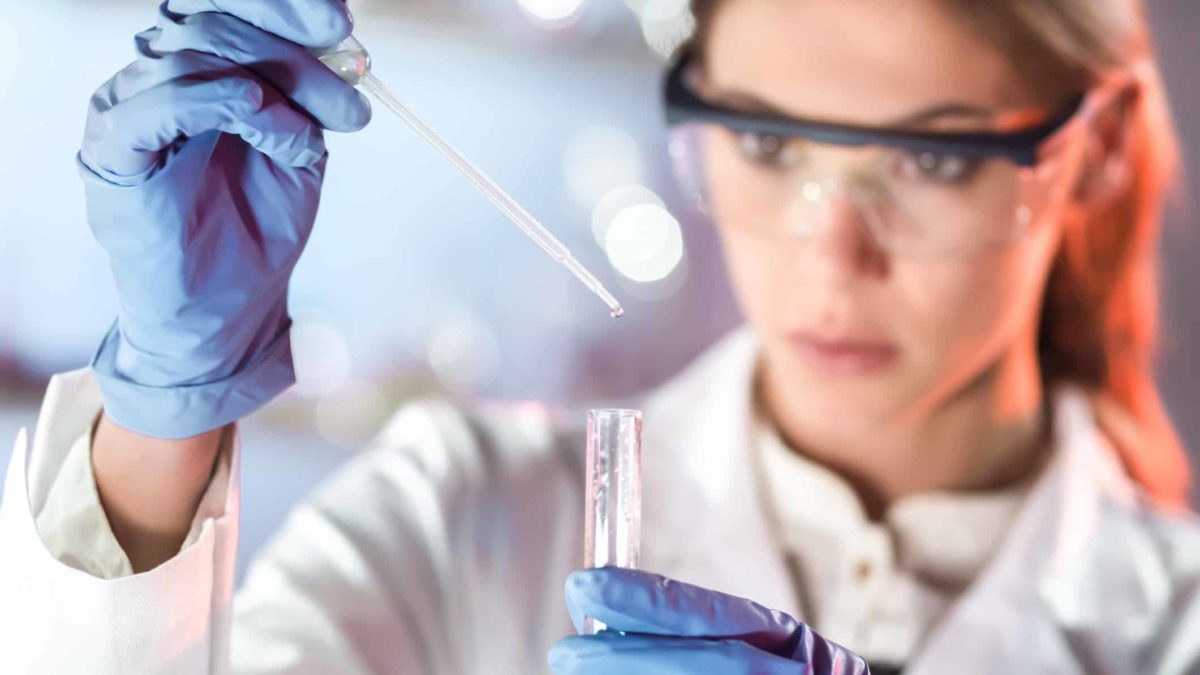As we've covered extensively on the Fool over the past week, the S&P/ASX 200 Index (ASX: XJO) had a very successful year during the last financial year that has just passed us by. Over FY2021, the ASX 200 managed to add a very healthy 24%, making it one of the best financial years ever for ASX 200 shares. But that's old news now. So today, we're checking out how some of the ASX's top biotech shares performed over FY21. Here's the tea:
5 top ASX biotech shares in FY21
Healius Ltd (ASX: HLS)
Healius is an ASX biotech company that works in the pathology, imaging and medical centres spaces. It has also recently branched out into COVID-19 testing. Healius had a rather successful FY2021. Healius started the financial year at approximately $3.05 a share. It finished up last Wednesday at $4.63 a share, putting its FY21 gains at a very robust 51.8%. A positive trading update that Healius delivered back in May seems to have lit a fire under the company's shares over the back half of the financial year in particular. This update showed quarterly revenue growth of 8%, as well as the company reaching the milestone of 3 million COVID-19 tests in total.
Pro Medicus Limited (ASX: PME)
Pro Medicus is another ASX biotech share that performed rather well in the financial year just gone. This compnay started FY21 at $26.4 a share, but ended up last week at $58.66. That's a 12 month gain of 121.7%. Pro Medicus is in the imaging and diagnostic space as well. It also provides radiology information systems, communication services and visualisation to hospitals, medical centres and other health care facilities.
A series of positive announcements over FY21 seems to have been the primary catalyst here. Back in May, Pro Medicis announced an 8-year contract with The University of Vermont Health Network, which locks in a revenue stream for the company. Further, Pro Medicus also announced in June that it had inked a long-term collaboration agreement with Mayo Clinic.
Telix Pharmaceuticals Ltd (ASX: TLX)
The Telix share price might be having a rough time today (down 2.8% at the time of writing). But that doesn't take away from the fact that this company had an outstanding FY2021. Telix started the financial year at just $1.28 a share. It finished up last Wednesday at $6.08 a share, marking its FY21 gains at a very pleasing 375%. So what went so right for Telix?
Well, Telix is a biotech company that is working on molecularly-targeted radiation therapy to assist cancer patients. Again, it was a series of positive updates that seemed to be at work here. Back in May, Telix announced that its bone marrow conditioning drug TLX66 had "met study objectives" in patients during a clinical trial. That wasn't the only piece of good news either. Back in January, Telix reported that the US Food and Drug Administration (FDA) had approved the recruitment of patients in a study looking at Zirconium Imaging in Renal Cancer Oncology (ZIRCON).
Imugene Limited (ASX: IMU)
And at last, we get to the best performing ASX biotech share in Imugene. Imugene was also the best performing ASX share in the All Ordinaries Index (ASX: XAO) over FY21 as well, incidentally. Imugene shares started the financial year at just 3.1 cents a share, but finished up last week at 35.5 cents. That's a gain of a whopping 1,045%. Why was Imugene such a powerful biotech gainer in FY21? Well, in April, it informed the markets that its clinical trials for the treatment of gastric cancer had proved successful. Soon after, Imugene announced in May that it would be conducting further clinical trials for the treatment of cancerous tumours with oncolytic virus and cell therapy technology.
CSL Limited (ASX: CSL)
This one is a bit of a bonus, but we couldn't miss the ASX's largest biotech company (and the third-largest ASX share overall by market capitalisation). CSL, in contrast to the companies above, didn't have a great FY21. Investors might remember the cracking growth CSL shares became known for over the past decade. But 2020 and 2021 has seen this growth stall somewhat. CSL shares started out FY21 at $287 apiece.
But by the end of the financial year, they hadn't strayed too far, ending last week at $285.47. That's a loss of 0.53% for the preceding 12 months. Nothing terrible happened to CSL over the year that caused this stagnation. But ongoing problems with the company's formerly lucrative plasma collections business, mostly due to the pandemic, can perhaps be blamed here. A rising Aussie dollar over the financial year wouldn't have helped either (CSL reports in US dollars).









